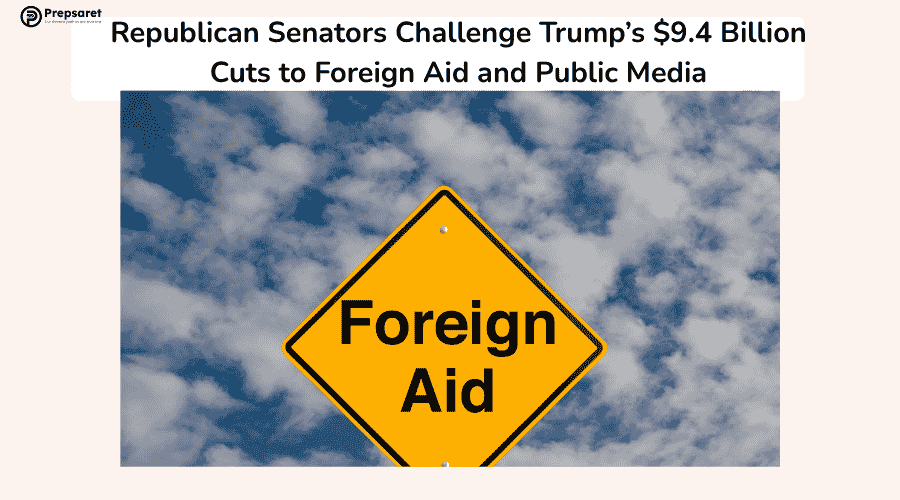Key Points:
-
Five GOP senators express concern over proposed cuts to foreign aid and public media funding.
-
Critics say the move could harm vulnerable communities and weaken U.S. global influence.
-
Trump administration insists the cuts reflect a push for fiscal responsibility.
GOP Pushback Reveals Rift Over Budget Priorities
Several Republican senators voiced opposition on Wednesday to President Donald Trump’s plan to slash $9.4 billion in congressionally-approved foreign aid and public media funding, signaling internal party tension over federal spending control.
The resistance came during a Senate Appropriations Committee hearing, where White House budget director Russ Vought defended the administration’s proposal as a necessary step to eliminate “wasteful spending” and “correct our fiscal trajectory.”
However, five GOP senators, including Susan Collins of Maine, Lisa Murkowski of Alaska, and Mitch McConnell of Kentucky, raised concerns about the deeper implications of the cuts.
Senator Collins, the committee chair, criticized the plan’s potential impact on global food and health initiatives. Holding up food packets funded through the aid program, she questioned why the administration would seek to cancel funding that the president himself had approved earlier in the year.
McConnell, a powerful voice in the Republican Party, condemned the plan’s execution as “unnecessarily chaotic.” He warned it might cede influence to strategic rivals like China, who could exploit reduced American engagement in global aid to expand their soft power reach.
While the House of Representatives passed the proposed funding cuts earlier this month, the Senate must also approve the changes in the coming weeks for them to take effect.
Several senators indicated a willingness to alter or replace the package entirely. “I want to see fundamental changes in the package, and I am already working on a substitute,” Collins stated after the hearing.
Cuts to Public Media and Global Health Spark Additional Concerns
The proposed budget reductions would also affect domestic programs, including public broadcasting. The Corporation for Public Broadcasting, which supports PBS and NPR, is among the targets of the administration’s cuts.
Republican Senators Mike Rounds and Deb Fischer pushed back, highlighting how local radio stations—particularly those serving Native American communities and rural areas with poor connectivity—depend heavily on this funding program.
On foreign aid, the administration’s rationale for eliminating certain programs—such as LGBTQ advocacy efforts in Uganda—cited concerns about aligning with American interests. Yet critics argue that cutting funds in response to controversial international policies may actually reduce U.S. influence and compromise humanitarian outreach.
Senator Lindsey Graham offered a mixed response. While long known as a supporter of the President’s Emergency Plan for AIDS Relief (PEPFAR), he said he would back the funding cuts, claiming the program “is not beyond scrutiny.”
This rare intra-party dispute reveals growing friction between Republican lawmakers and the Trump administration over spending priorities and global engagement.
As the Senate prepares to review the proposed budget package, the outcome may determine not only the future of U.S. foreign aid and public broadcasting but also the degree of influence the administration holds over Congress.
The debate underscores a broader question facing Republicans: where to draw the line between fiscal discipline and America’s leadership role on the global stage.

